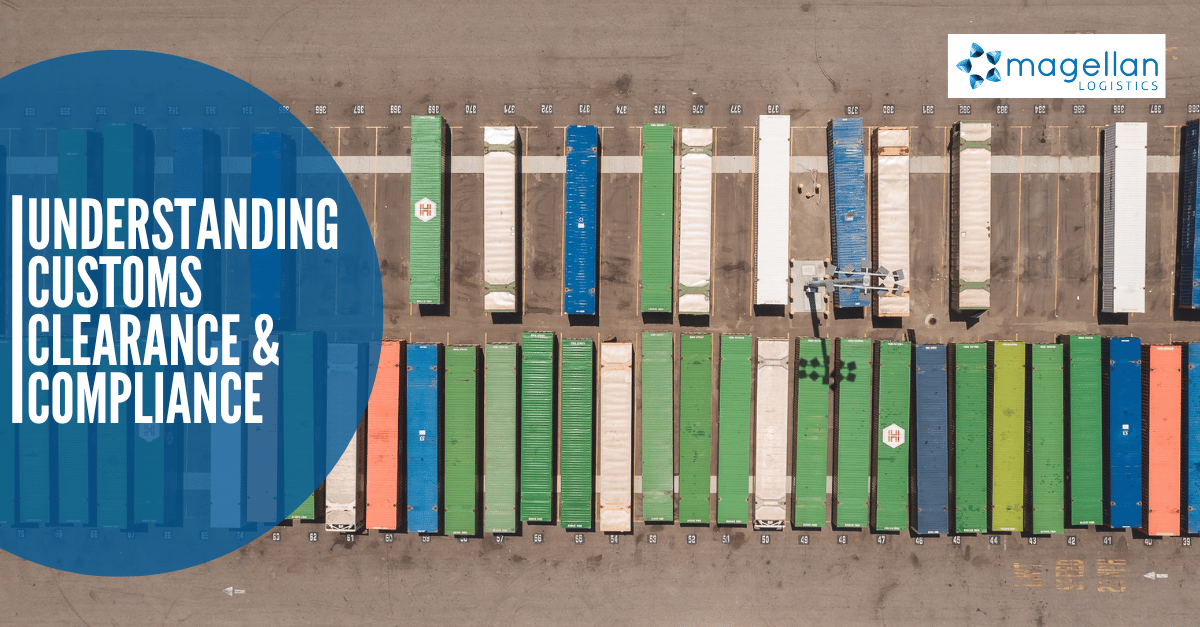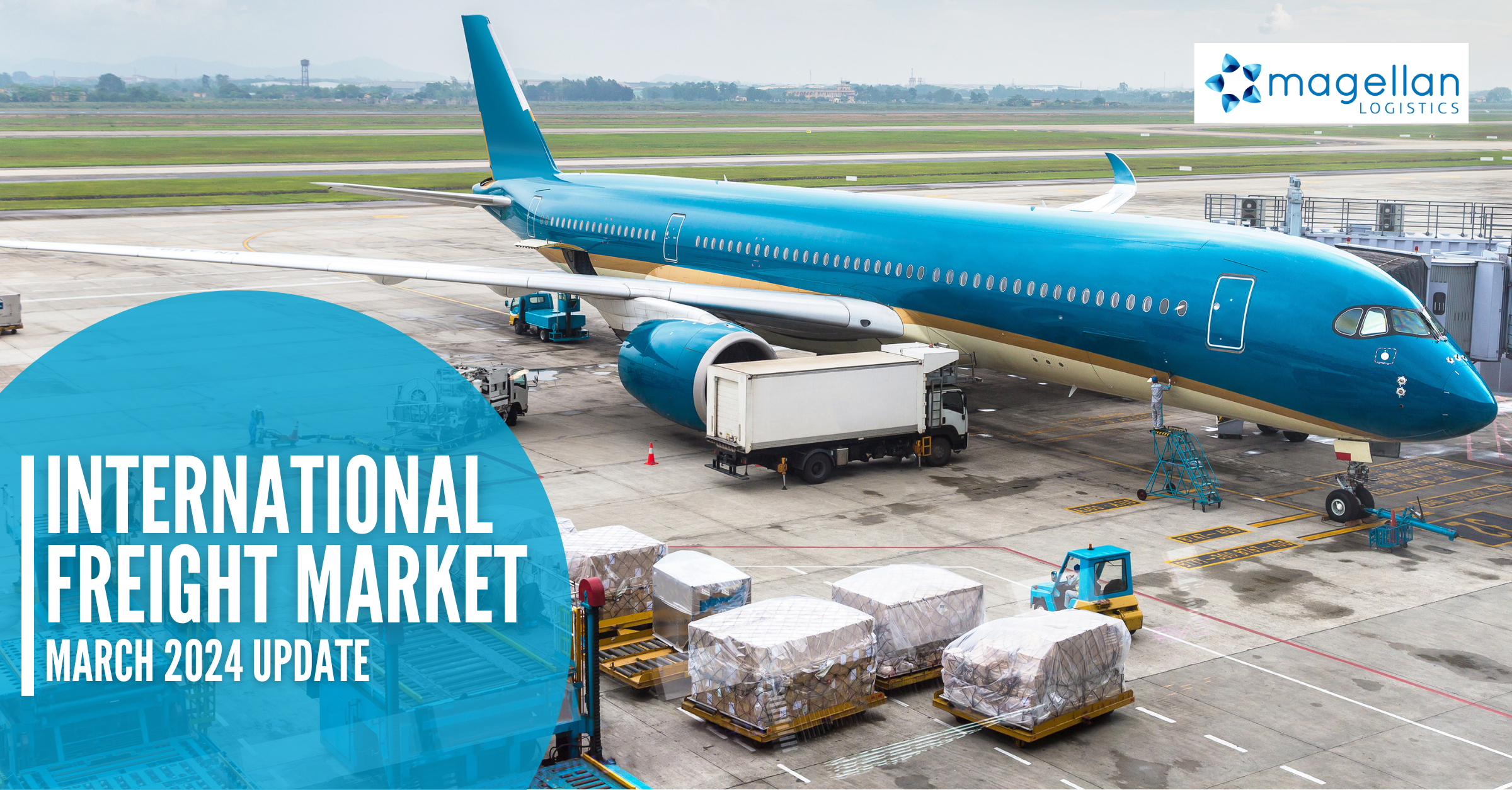Customs compliance is one of the cornerstones of a reliable freight forwarder. Their ability to understand customs regulations easily is of enormous value to your business. As a major player in the international trade industry, freight forwarders and customs brokers navigate complex customs regulations and compliance issues to ensure that your goods can enter the destination country. Freight forwarders must be well-versed in all aspects of customs documentation, prohibited cargo, declaration laws and penalties to ensure the smooth transport of goods.
What is customs clearance?
Customs clearance is a series of activities conducted by a customs broker to ensure that goods are legally allowed to enter a country and comply with the relevant regulations. Customs clearance is one of the most critical components of freight forwarding, as a failure to comply with customs regulations can lead to delays, financial penalties or even legal action. Even though not every transaction comes under the scrutiny of the Australian Border Force, it is vital for the parties involved in importing a good to ensure they have the correct documentation, as customs may conduct a random compliance check at any time.
In order to clear customs, imports must also meet biosecurity requirements managed by The Department of Agriculture, Fisheries and Forestry.
What is a customs broker?
Customs brokers are licensed professionals who manage the documentation related to importing and exporting goods in Australia. They act as intermediaries between government agencies, importers and exporters. Some freight forwarders hold a corporate customs broker licence and will conduct customs clearance for their clients alongside the other services provided. In contrast, other freight forwarders outsource customs clearance to a brokerage firm.
Customs brokers assist importers with a range of responsibilities, such as:
- Calculating duties and taxes payable on an import
- Recognising what tariffs apply to an imported item and utilising tariff concessions
- Preparation and submission of declaration documents to the correct government bodies
- Ensuring proper classification of goods in accordance with the Harmonised System (HS) of product codes
- Biosecurity concerns
Important industry groups
International Forwarders and Customs Brokers Association of Australia (IFCBAA):
IFCBAA is Australia’s peak national body representing customs brokers, international freight forwarders and other associated groups’ interests in international trade logistics and the provision of supply chain management services.
The Freight and Trade Alliance (FTA):
A representative body for the international supply chain sector, the FTA brings together importers, exporters, customs brokers and freight forwarders, providing training and information on customs compliance and news regarding Australia’s customs
Important customs agencies
There are several important customs agencies in Australia, including:
The Australian Border Force (ABF):
Australia’s ‘frontline border law enforcement agency and customs service’. The Australian Border Force is a federal law agency that oversees all travel and trade into and out of Australia.
The Australian Department of Home Affairs:
This overarching body is responsible for managing various policies related to national security, immigration, law enforcement and international trade. The department incorporates Australian Border Force.
The Department of Agriculture, Fisheries and Forestry (DAFF) and the Department of Climate Change, Energy, the Environment and Water:
Responsible for regulating the import and export of agricultural/biological products, including plants, animals, animal products, and food. The department works in tandem with the ABF to ensure that biosecurity risks are managed effectively.
Customs regulations
There are several key customs regulations that importers and exporters must consider and comply with when shipping goods into and out of Australia. These include:
Prohibited goods:
A prohibited good is an item that is not allowed to be imported into Australia due to concerns over safety, national security or other reasons. Prohibited goods include illegal drugs, weapons and certain food products. Failing to comply with prohibited goods regulations carries serious penalties of exceeding $500,000 in fines and up to 10 years of imprisonment.
Item declaration laws:
Item declaration laws require importers to provide detailed documentation on the goods they are importing. Importers must include information such as the type and quantity of goods, their value and their country of origin on the document. Upon entering Australia, items requiring declaration include all food, plant matter and animal items, firearms, weapons and ammunition, and currency amounts of Aud $10,000.
Tariff concession orders:
A Tariff Concession Order ( TCO ) is an Australian Government revenue concession that eliminates customs duty on certain goods that are not manufactured locally.
Free Trade Agreements:
A Free Trade Agreement ( FTA ) is an international agreement between two or more countries that reduces or eliminates customs duty on products shipped between the participating countries.
Customs compliance issues
Non-compliance with the customs regulations on goods imported to and exported from Australia can have significant consequences. As such, importers and exporters need to be aware of common compliance issues and ensure they take all the necessary steps to comply with customs regulations.
Incorrect classification of goods:
This is one of the most common customs compliance issues. Most goods imported into Australia are subject to tariff classification, which determines the duty rate applied to the goods. Goods must be correctly classified according to the Harmonised System of product codes to ensure that correct duty rates are applied. Incorrect classification can result in fines and other penalties.
Undervaluation of goods:
When calculating duty rates, it is crucial to declare the correct value of goods and any additional costs, such as freight, insurance, etc. Incorrect value declaration can lead to incorrect duty rates being applied, which can lead to fines and other penalties.
Non-compliance with environmental and safety regulations:
Australia’s safety and environmental regulations are comprehensive. Any goods imported into Australia must comply with these regulations. Non-compliance can lead to the seizure of goods by customs, fines, and other penalties.
Failure to obtain permits and licences:
Some goods are regarded as prohibited imports unless the importer holds a licence or permit before importing into Australia. This includes goods subject to quarantine regulations and items restricted or prohibited for environmental or safety concerns. Importing such products without the correct approval will result in the ABF or DAFF seizing the goods or directing them for re-export or destruction.
Improper documentation:
Importers/their customs brokers are required to submit a range of customs documentation when importing goods into Australia. The clearance process may be delayed if incorrect documentation is submitted or documents are not submitted promptly.
Further information
Further information relating to customs clearance, customs regulations and compliance issues, as well as Australian regulatory bodies and industry groups, can be found below:
Australian regulatory bodies:
- Australian Border Force
- The Department of Home Affairs
- The Department of Agriculture, Fisheries and Forestry
- The Department of Climate Change, Energy, the Environment and Water
Australian industry bodies:
Magellan Logistics provides freight and logistics services to all industries, including sea freight, air freight, customs clearance and the all-important digital freight portal providing 24/7 visibility of all your shipments. Get in touch with one of our freight specialists on 1300 651 888.














